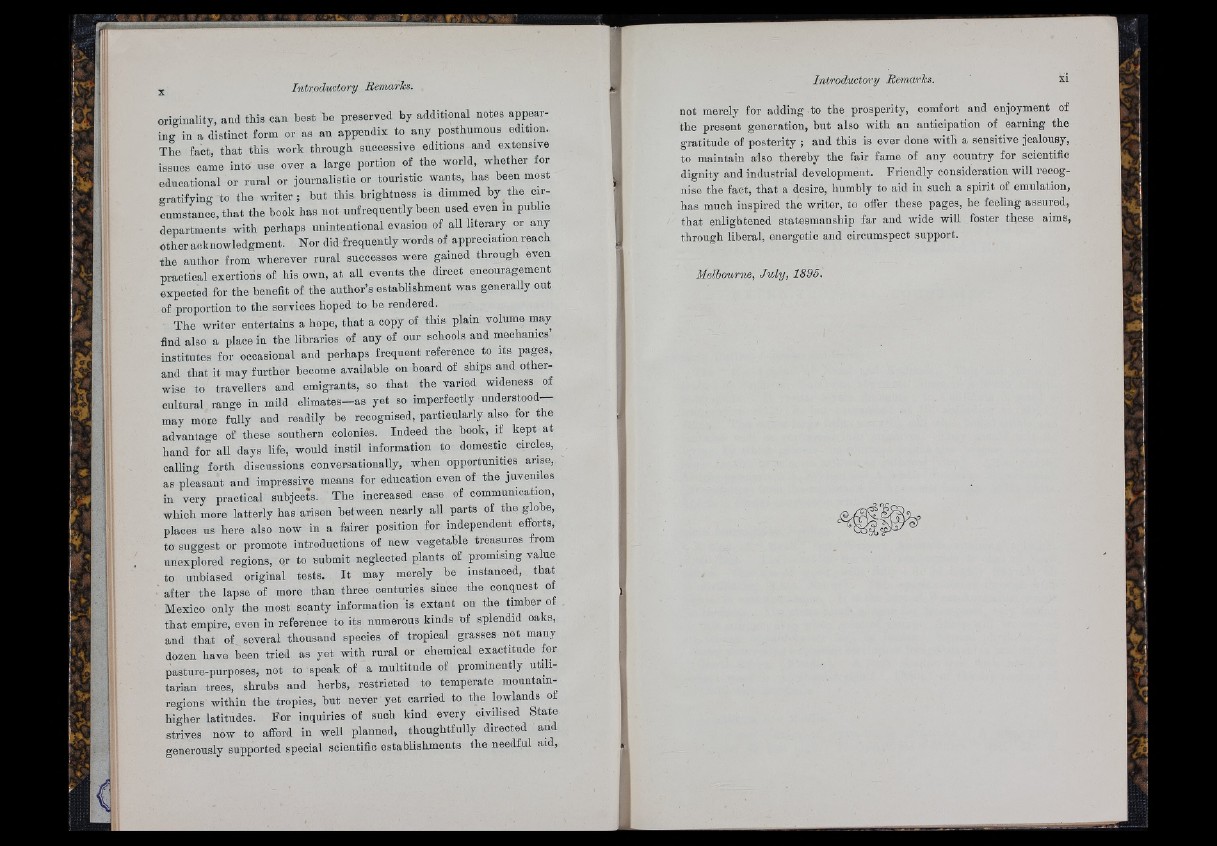
;j Introductory Remarks.
originality, and this can best be preserved by additional notes appearing
in a distinct form or as an appendix to any posthumous edition.
The fact, th a t this work through successive editions and extensive
issues came into use over a large portion of the world, whether for
educational or rural or journalistic or touristic wants, has been most
gratifying to the w rite r; but this brightness is dimmed by the circumstance,
th a t the book has not unfrequently been used even in public
departments with perhaps unintentional evasion of all literary or any
other acknowledgment. Nor did frequently words of appreciation reach
the author from wherever rural successes were gained through even
practical exertions of his own, at all events the direct encouragement
expected for the benefit of the author’s establishment was generally out
of proportion to the services hoped to be rendered.
The writer entertains a hope, th a t a copy of this plain volume may
find also a place in the libraries of any of our schools and mechanics’
institutes for occasional and perhaps frequent reference to its p a p s ,
and that it may further become available on board of ships and otherwise
to travellers and emigrants, so th a t the varied wideness of
cultural range in mild climates—as yet so imperfectly understood—
may more fully and readily be recognised, particularly also for the
advantage of these southern colonies. Indeed the book, if kept a t
hand for all days life, would instil information to domestic circles,
calling forth discussions conversationally, when opportunities arise,
as pleasant and impressive means for education even of the juveniles
in very practical subjects. The increased ease of communication,
which more latterly has arisen between nearly all parts of the globe,
places us here also now in a fairer position for independent efforts,
to suggest or promote introductions of new vegetable tr e a p re s from
unexplored regions, or to submit neglected plants of promising v a p e
to unbiased original tests. I t may merely be instanced, th a t
after the lapse of more than three centuries since the conquest of
Mexico only the most scanty information is extant on the timber of
th a t empire, even in reference to its numerous kinds of splendid oaks,
and th a t of several thousand species of tropical grasses not many
dozen have been tried as yet with rural or chemical exactitude for
pasture-purposes, not to speak of a multitude of prominently utilitarian
trees, shrubs and herbs, restricted to temperate mountain-
regions within the tropics, but never yet carried to the lowlands of
higher latitudes. For inquiries of such kind every civilised State
strives now to aff'ord in well planned, thoughtfully directed and
generously supported special scientific establishments the needful aid.
not merely for adding to the prosperity, comfort and enjoyment of
the present generation, but also with an anticipation of earning the
gratitude of posterity ; and this is ever done with a sensitive jealousy,
to maintain also thereby the fair fame of any country for scientific
dignity and industrial development. Friendly consideration will recognise
the fact, that a desire, humbly to aid in such a spirit of emulation,
has much inspired the writer, to offer these pages, he feeling assured,
th a t enlightened statesmanship far and wide will foster these aims,
through liberal, energetic and circumspect support.
Melbourne, J u ly , 1896.